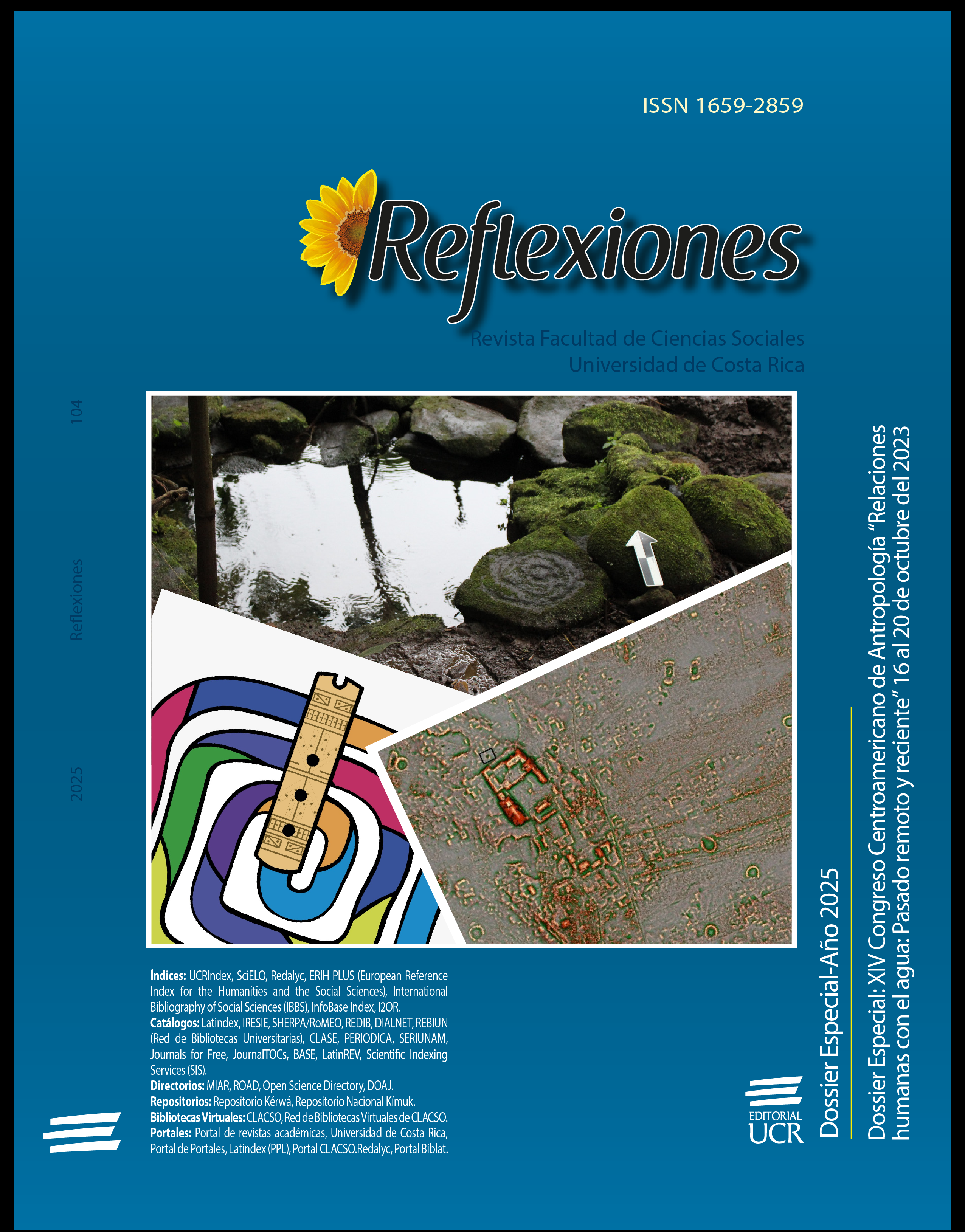Abstract
Introduction: A longitudinal investigation has been implemented in the Rosa María archaeological monument (in Pacayitas, Turrialba, Costa Rica) where interdisciplinary has been essential to get closer to understanding, above all, the ancient hydraulic works that are part of this pre-Columbian settlement.Objective: Through this work, a review and synthesis is made –of these 12 years of research – through the different investigative stages carried out there; as well as its scope and main results obtained are addressed.Method: A series of basic/traditional techniques in archeology were combined, such as: surveys, maps, vertical and horizontal excavations, analysis of the different recovered materials; as well as some specialized ones coming from other fields such as photogrammetry, topography, as well as tools linked to the management and diffusion of cultural heritage.Results: It was possible to know the structural/constructive nature of the architecture related to the ancient management of the vital liquid (water boxes, catchment boxes, filter galleries, channels, etc.), as well as to identify certain petroglyphs associated with them; all this to understand more about the hydraulic systems of pre-Columbian Costa Rica.
[Continue reading in the article]
References
Arce, Marco. 2022a. «Aplicación de un sistema de información geográfica en la determinación de las condiciones hidrológicas y los sistemas hidráulicos del sitio arqueológico Rosa María, cantón Turrialba, Costa Rica». Tesis de maestría en sistemas de información geográfica y teledetección, Universidad Nacional y Universidad de Costa Rica.
Arce, Marco. 2022b. Caracterización de los sistemas hidráulicos del sitio arqueológico Rosa María (C-146RM), La Suiza de Turrialba, Cartago. Informe presentado a la Comisión Arqueológica Nacional. San José, Costa Rica.
Arce, Marco, Mónica Aguilar y Jeffrey Peytrequín. 2015. Sitio Rosa María (C-29RM): Nuevos datos acerca de sus obras hidráulicas. Informe inédito, biblioteca de los autores, San José, Costa Rica.
Arce, Marco y Jeffrey Peytrequín. 2019. «El motivo de la espiral y los meandros en petrograbados asociados a obras hidráulicas precolombinas del Caribe de Costa Rica». Trama: Revista de Ciencias Sociales y Humanidades, 8 (enero-junio): 70-105. http://revistas.tec.ac.cr/trama
Dubón, Jorge, Hernán Solís, y Oscar Fonseca. 1984. Arqueología e ingeniería hidráulica en Guayabo de Turrialba. En Informe del Primer Seminario Nacional de Ingeniería de los Recursos Hidráulicos, San José, 18-20 de octubre. Universidad de Costa Rica.
Hernández, Cristina. 2007. «Hallazgo de un acueducto precolombino en la cuenca media del río Pacuare, Costa Rica». Cuadernos de Antropología, (17-18): 165-176. https://revistas.ucr.ac.cr/index.php/antropologia/article/view/7229
Kennedy, William. 1968. «Archaeological investigations in the Reventazón river drainage area, Costa Rica». Tesis de doctorado en arqueología, Department of Anthropology, Tulane University, New Orleans.
Museos del Banco Central de Costa Rica. 2024. «Episodio 6: NEXOS DE AGUA (Temporada 1)». Vídeo de YouTube, 33:29. Publicado el 11 de marzo de 2024. https://www.youtube.com/watch?v=sIAUhNfDhPs
Peytrequín, Jeffrey y Marco Arce. 2016. «Obras hidráulicas antiguas del Centro y el Caribe costarricense (600-1200 d.C.): Una propuesta formal de clasificación». En Arqueología del Caribe Costarricense. Contribuciones Científicas, editado por Luis Hurtado de Mendoza, 67-86. San José, Costa Rica: Editorial e Imprenta LIL
Peytrequín, Jeffrey y Marco Arce. 2018. «Petrograbados y obras hidráulicas precolombinas en el Caribe de Costa Rica». En Memoria del I Congreso Internacional sobre Patrimonio Cultural y Natural: Agua, cultura y territorio en Centroamérica (2016), editado por Juan Ramón Rodríguez-Mateo, 350-363. Sevilla, España: Editorial Acer-VOS.
##plugins.facebook.comentarios##

This work is licensed under a Creative Commons Attribution-NonCommercial-NoDerivatives 4.0 International License.
Copyright (c) 2025 Marco Arce Cerdas, Jeffrey Peytrequín Gómez

